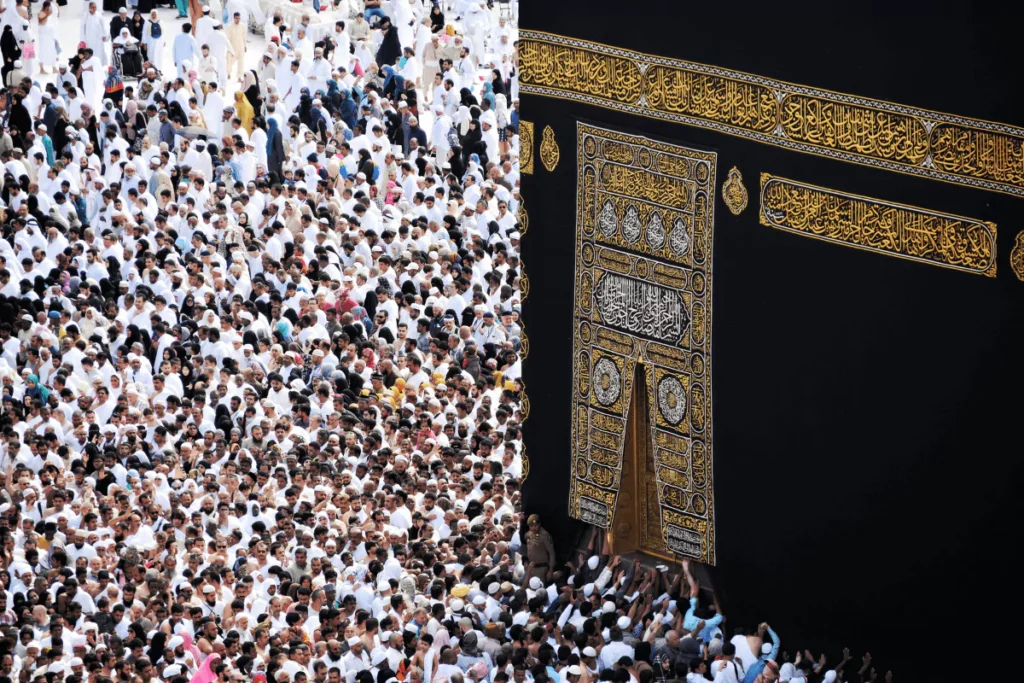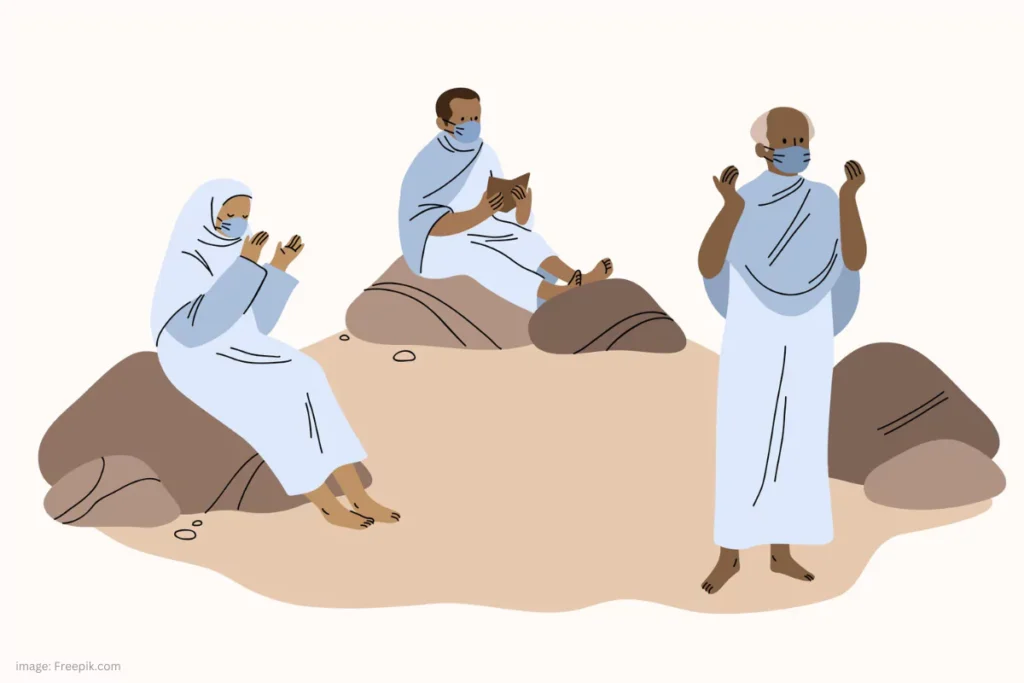The Hajj pilgrimage, the fifth pillar of Islam, is a sacred journey undertaken by millions of Muslims from all corners of the globe. It is a testament to the deep-rooted faith and devotion of Muslims, as they embark on a spiritual expedition to the holiest city of Mecca, Saudi Arabia. The Hajj rituals encompass a series of profound and symbolic acts that hold immense significance in the hearts of believers. This article explores the emotional journey of Hajj, highlighting its spiritual, social, and personal impact.
Table of Contents
The Significance of Hajj

The significance of Hajj transcends mere words and touches the deepest corners of the heart. It is a journey that ignites emotions like no other, as pilgrims embark on a sacred expedition to seek divine presence and spiritual rejuvenation. Hajj holds profound significance as it connects believers with the Divine, providing a sanctuary for seeking forgiveness and experiencing profound spiritual cleansing. It is a journey of unity, where people from diverse backgrounds come together as one, shedding worldly distinctions and embracing the bonds of brotherhood. The significance of Hajj lies in its power to transform lives, awaken hearts, and leave an indelible mark of faith and devotion.
Connecting with the Divine
Hajj serves as a direct connection between the believers and their Creator. It is a unique opportunity to experience the presence of the Almighty in a profound and personal manner. The journey to the holy city of Mecca reinforces the bond between the individual and their Creator, allowing them to seek closeness and seek divine mercy.
Spiritual Cleansing and Forgiveness
Hajj serves as a powerful means of seeking forgiveness and spiritual purification. As pilgrims enter the state of Ihram, a state of ritual consecration, they symbolically shed their worldly attachments and focus solely on the worship of Allah. The acts of repentance, prayers, and supplication during the pilgrimage provide a unique platform for seeking forgiveness and starting anew.
Unity and Brotherhood
Hajj is a remarkable display of unity and brotherhood among Muslims from diverse backgrounds. Regardless of race, nationality, or social status, all pilgrims stand side by side, dressed in simple white garments, stripped of any worldly distinctions. This sense of equality and camaraderie serves as a reminder of the universality of Islam and fosters a deep bond among believers.
Preparing for Hajj

Preparing for Hajj involves both practical and spiritual aspects. It requires careful planning and adherence to specific requirements.
Obtaining the Necessary Documents
Before embarking on the journey, pilgrims must ensure they have obtained the necessary documents, including visas, travel permits, and health certificates. These documents facilitate a smooth entry into Saudi Arabia and the performance of the pilgrimage.
Physical and Spiritual Preparations
Hajj is a physically demanding journey, and pilgrims must prepare themselves accordingly. Engaging in physical exercises, maintaining good health, and packing essential supplies are vital aspects of the preparation. Additionally, pilgrims must engage in spiritual preparations by increasing their devotion, seeking knowledge about the rituals, and purifying their intentions.
Arrival in Mecca

Upon reaching Mecca, the spiritual atmosphere engulfs the pilgrims, intensifying their sense of purpose and devotion.
Entering the State of Ihram
Pilgrims enter the sacred state of Ihram by donning simple white garments, which symbolize purity and equality. This attire serves as a visual reminder of the unity and devotion shared by all the pilgrims, irrespective of their background. The state of Ihram entails refraining from certain actions and behaviors, fostering a heightened state of spirituality.
Tawaf: Circumambulation of the Kaaba
The first ritual performed upon entering Mecca is Tawaf, the circumambulation of the Kaaba. Pilgrims walk around the Kaaba, the holiest site in Islam, seven times in a counterclockwise direction. This act signifies the spiritual center of the Islamic world and serves as a profound expression of love and reverence towards Allah.
The Day of Arafah

The Day of Arafah is the most significant day of Hajj, representing the pinnacle of spiritual connection and worship.
Standing in Worship
On the 9th day of the Islamic month of Dhul Hijjah, pilgrims gather in the vast plains of Arafah. This day is dedicated to supplication, reflection, and seeking forgiveness. Standing on the plains of Arafah, pilgrims beseech Allah’s mercy and forgiveness, pouring out their hearts in sincere devotion and repentance.
Seeking Forgiveness and Mercy
The Day of Arafah is believed to be a day when sincere prayers are answered, and sins are forgiven. Pilgrims seize this precious opportunity to seek forgiveness for their past transgressions, cleanse their souls, and strengthen their bond with the Almighty.
Muzdalifah and Mina

After the Day of Arafah, pilgrims proceed to Muzdalifah, where they spend the night under the open sky, engaging in prayers and reflection.
Collecting Pebbles for the Stoning Ritual
In Muzdalifah, pilgrims collect pebbles that will be used during the symbolic stoning of Satan. These pebbles hold profound symbolic significance, representing the rejection of evil and the determination to resist temptation.
The Symbolic Stoning of Satan
From Muzdalifah, pilgrims move to Mina, where they perform the stoning ritual. This ritual involves throwing the collected pebbles at three pillars that symbolize Satan’s temptation of Prophet Ibrahim. The act symbolizes the pilgrims’ resolve to reject evil and stay steadfast in their faith.
Farewell Tawaf

Before concluding their pilgrimage, pilgrims perform a final circumambulation of the Kaaba known as the Farewell Tawaf.
Final Circumambulation of the Kaaba
The Farewell Tawaf is a deeply emotional moment for pilgrims, marking the completion of their Hajj journey. With tearful eyes and hearts full of gratitude, they bid farewell to the sacred site, cherishing the memories and spiritual transformation they experienced throughout the pilgrimage.
Conclusion
The Hajj pilgrimage is an extraordinary journey that encompasses profound spiritual experiences, unity, and personal transformation. It is a testament to the devotion and unwavering faith of Muslims worldwide. Through the rituals of Hajj, believers seek forgiveness, purification, and a deep connection with the Divine. This sacred journey strengthens the bonds of brotherhood among Muslims and instills a sense of humility, gratitude, and spiritual awakening.
FAQs
What is the significance of the Kaaba in Hajj?
The Kaaba is the focal point of the Hajj pilgrimage. It symbolizes the unity of Muslims, their devotion to Allah, and serves as a powerful visual representation of their spiritual center.
How long does the Hajj pilgrimage last?
The Hajj pilgrimage typically lasts for about five to six days, with specific rituals performed on different days.
Can Hajj be performed by anyone?
Hajj is a religious obligation for Muslims who are physically and financially capable. Non-Muslims do not perform Hajj.
Is Hajj only for Muslims?
Yes, Hajj is an Islamic pilgrimage and is intended exclusively for Muslims.
What are the spiritual benefits of performing Hajj?
Performing Hajj brings numerous spiritual benefits, including seeking forgiveness, purification of the soul, strengthening faith, and experiencing a deep connection with Allah and fellow believers.





Pingback: Saudi Arabia Launches Cutting-Edge KSA Visa System to Boost Tourism and Pilgrimage
Pingback: Don't Miss Out: Hajj 2024 Registration Deadline in the USA
Pingback: Preparing for Hajj 2024: Essential Tips and Insights